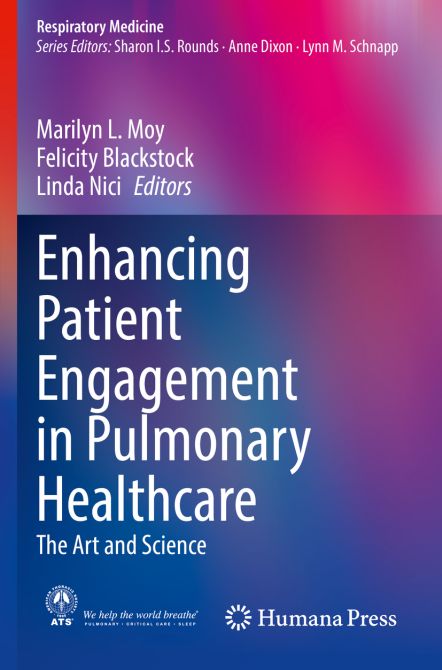Enhancing Patient Engagement in Pulmonary Healthcare
The Art and Science
| Auflage | 2021 |
| Seiten | 293 pp., 60 illus. |
| Verlag | Springer |
| ISBN | 9783030448912 |
| Artikel-Nr. | 569827 |
Lieferzeit ca. 5 Werktage
Produktbeschreibung
This book examines the most up-to-date strategies that can be used to enhance the healthcare professional-patient interaction to influence positive behavior change and improve treatment adherence in pulmonary healthcare. This book is written by experts in the field who couple their experience with practical strategies (the art) with evidence-based theory (the science).
Chapters discuss global concepts such as motivational interviewing on improving engagement and how to apply strategies to specific situations (for examples: smoking cessation, promoting physical activity, inhaler adherence, supplemental oxygen use, and non-invasive ventilation) commonly experienced on the front lines of caring for patients with pulmonary disorders. The textbook raises awareness of direct approaches and recent technological advances that healthcare professionals can use to support positive behavior change in their day-to-day clinical practice. Effective, patient-tailored self-management interventions are discussed, including the evidence for these interventions and ways to personalize the strategies to each patient’s unique needs.
This book is an ideal guide for healthcare professionals working with patients experiencing chronic pulmonary conditions, including pulmonologists, primary care physicians, physician assistants, nurses, trainees, and the many allied health professionals involved in delivering care such as respiratory therapists, pharmacists, and behavioral psychologists. The concepts of this book can also be applied to the management of other chronic diseases such as coronary artery disease and diabetes mellitus.
Assists pulmonary medicine providers to formulate action plans, design educational activities to develop knowledge and skills in self-management, and effectively engage a patient in basic motivational conversations and health coaching to facilitate health behavior change with patients
Teaches providers to understand theories on motivation, behavior change, and learning which motivate, engage and support patients to positively adapt their health behavior(s) and develop skills to better manage their disease
Critically explores the literature on effective strategies for behavior change in smoking cessation, physical activity, non-invasive ventilation and supplemental oxygen therapy for people with chronic respiratory disease
Chapters discuss global concepts such as motivational interviewing on improving engagement and how to apply strategies to specific situations (for examples: smoking cessation, promoting physical activity, inhaler adherence, supplemental oxygen use, and non-invasive ventilation) commonly experienced on the front lines of caring for patients with pulmonary disorders. The textbook raises awareness of direct approaches and recent technological advances that healthcare professionals can use to support positive behavior change in their day-to-day clinical practice. Effective, patient-tailored self-management interventions are discussed, including the evidence for these interventions and ways to personalize the strategies to each patient’s unique needs.
This book is an ideal guide for healthcare professionals working with patients experiencing chronic pulmonary conditions, including pulmonologists, primary care physicians, physician assistants, nurses, trainees, and the many allied health professionals involved in delivering care such as respiratory therapists, pharmacists, and behavioral psychologists. The concepts of this book can also be applied to the management of other chronic diseases such as coronary artery disease and diabetes mellitus.
Assists pulmonary medicine providers to formulate action plans, design educational activities to develop knowledge and skills in self-management, and effectively engage a patient in basic motivational conversations and health coaching to facilitate health behavior change with patients
Teaches providers to understand theories on motivation, behavior change, and learning which motivate, engage and support patients to positively adapt their health behavior(s) and develop skills to better manage their disease
Critically explores the literature on effective strategies for behavior change in smoking cessation, physical activity, non-invasive ventilation and supplemental oxygen therapy for people with chronic respiratory disease
